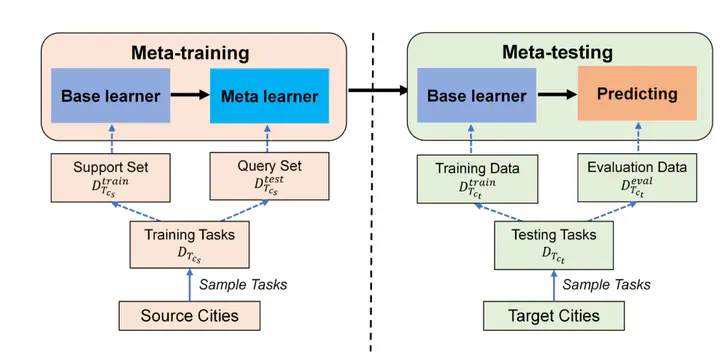
Abstract
Optimal store placement aims to identify the optimal location for a new brick-and-mortar store that can maximize its sale by analyzing and mining users’ preferences from large-scale urban data. In recent years, the expansion of chain enterprises in new cities brings some challenges because of two aspects:(1) data scarcity in new cities, so most existing models tend to not work (i.e., overfitting), because the superior performance of these works is conditioned on large-scale training samples; (2) data distribution discrepancy among different cities, so knowledge learned from other cities cannot be utilized directly in new cities. In this article, we propose a task-adaptative model-agnostic meta-learning framework, namely, MetaStore, to tackle these two challenges and improve the prediction performance in new cities with insufficient data for optimal store placement, by transferring prior knowledge learned from multiple data-rich cities. Specifically, we develop a task-adaptative meta-learning algorithm to learn city-specific prior initializations from multiple cities, which is capable of handling the multimodal data distribution and accelerating the adaptation in new cities compared to other methods. In addition, we design an effective learning strategy for MetaStore to promote faster convergence and optimization by sampling high-quality data for each training batch in view of noisy data in practical applications. The extensive experimental results demonstrate that our proposed method leads to state-of-the-art performance compared with various baselines.